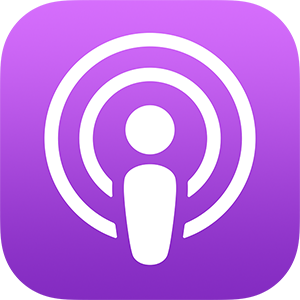As our world transitioned amid the global pandemic into remote production and virtual audiences, the esports industry was quick to pivot and among the first to get live sports back on air. Matt Arden and his team at the NBA 2K League have always been leaders in innovation and pivoting is in their DNA, but he says that didn’t make the work any easier or less painful.
“One of the keys to us was we didn’t spend a lot of time dwelling on problems,” said Arden, the Head of Content and Media at NBA 2K League. “We’d get in a room, we’d identify the problem, and we’d pick a solution. And whether we were right or we were wrong, or whether that led us down another rabbit hole that we eventually had to dig out of, that didn’t matter as much as being decisive.”
Matt joins us on this episode of #Storyteller to share their strategy on producing content for an audience at home, what’s worked, and what he’s learned.
On what they’ve done differently while producing for a virtual audience:
“The truth is what we did differently is we tried to make it not different. We poured a bunch of energy and resources into making it feel as big as it would have been had we done it in the arena we built to do it. And I think that was the biggest thing that I was driving the team to embrace that just because we’re in this unique scenario, doesn’t mean we should make excuses for lesser quality…at the end of the day we were striving for let’s try to get as high quality as we would demand of ourselves had we been in our arena with 30 HD cameras and all the stuff that we had at our disposal anyway. When we built from that principle, everything sort of unfolded in front of us because we knew what our threshold was. Our threshold was perfection. Which is ridiculous because we know we’ll never achieve that, but if we keep that in the back of our mind — that that’s actually the goal, then we keep pushing for bigger and better.”
On remote production techniques they will continue post-pandemic:
“What we realized is that special guests, or really talented people, or unique casters don’t have to be in the room with us to be part of our broadcast. A really cool takeaway that we got was we can start unfolding, or bringing into the fold, more and more personalities, more unique people, more people with different points of view, and we don’t have to have them in the same room with us to have them as part of our broadcast. I think as we get back to some normalcy, hopefully sooner rather than later, I think we’ll employ some remote broadcast technology and tactics moving forward because we think it enriches our broadcast, and why wait for someone’s schedule to clear up or be able to fly into New York for a few days. Let’s just bring them in. We know how to do it now.”
On including the audience in the broadcast:
“We would take suggestions from the chat and change our broadcast week over week based on what we thought fans might like, or what they’ve literally told us. And that was sort of a rudimentary way of doing it, but if we could do it in real time and also tie rewards to it and really create a more robust interactivity, I think that’s what I’m looking for out of the future of the viewership angle. Tagboard has been a great part of that. This is our first year working with Tagboard and we’ve been incredibly pleased with how we’ve been able to bring real-time conversations into our broadcast, because it causes conversations to happen in our broadcast. So it’s less about throwing a graphic up. It’s more about what that graphic leads us to then do, or to then discuss. The more we can involve and create a more inclusive community, the more powerful a product it will be.”
On how producing content for esports is unique:
“When you create a piece of content for the NBA, you don’t have to explain what basketball is. But for esports, and because esports is growing so fast, there’s a really great likelihood that a good portion of our audience on any given night is new to us, or experiencing us for one of the first times. And so making sure that you’re accelerating the esport that you’re in and you’re accelerating the platform that you’re on, but also taking time to explain as you go. For a lot of creatives, that can be difficult because it feels like you’re going back. We have to divorce ourselves from that because going back is important and explaining and giving context is wildly important. It’s not for a couple of weeks. It’s not even for a couple of years. I think like any startup, you have to give everybody your elevator pitch at a regular time.”
Subscribe to #Storyteller wherever you like to listen:
